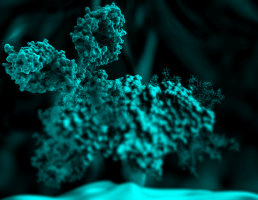
Researchers from the Greehey Children's Cancer Research Institute at UT Health San Antonio co-authored a paper published in Science Signaling that looks at the reliability of a common research tool to study RAS cancer mutations.
RAS mutations are implicated in several cancers, including lung, colorectal and pancreatic ductal carcinoma.
The three RAS genes are the most frequently mutated oncogenes in cancer, implicated in more than a quarter of all human cancers.
In paediatric cancers, mutations that activate the RAS pathway are frequently found in embryonal rhabdomyosarcoma (35 percent of tumours) and recurrent neuroblastoma (60 percent).
The Science Signaling article says that although there is intense interest in studying the development of anti-cancer strategies targeting RAS proteins, the field is held back by poor reliability of anti-RAS antibodies to recognise the members of the RAS family of proteins.
These antibodies are a critical research tool, but lack of reliability limits useful -- and replicable -- study results, the authors noted.
Angelina V. Vaseva, Ph.D., and Peter J. Houghton, Ph.D., director of the Greehey Institute, are the co-authors from UT Health San Antonio.
Dr. Vaseva is a visiting scientist from the laboratory of Dr. Channing Der, the senior author on the study performed at the University of North Carolina at Chapel Hill, and done in collaboration with the National Cancer Institute RAS Initiative.
Dr. Vaseva conducts research in the Houghton laboratory related to therapeutics of RAS-mutant childhood cancers.
The team from multiple institutions evaluated 22 commercially available anti-RAS antibodies for their capability to recognise RAS subtypes and mutated RAS.
The collaborators identified antibodies that selectively recognise each of the four human RAS proteins in human cancer cells.
This capability is only in Western blot assays, one of the most commonly used research analyses, and not in other research analyses used by laboratories worldwide.
Source: University of Texas Health Science Center at San Antonio
We are an independent charity and are not backed by a large company or society. We raise every penny ourselves to improve the standards of cancer care through education. You can help us continue our work to address inequalities in cancer care by making a donation.
Any donation, however small, contributes directly towards the costs of creating and sharing free oncology education.
Together we can get better outcomes for patients by tackling global inequalities in access to the results of cancer research.
Thank you for your support.